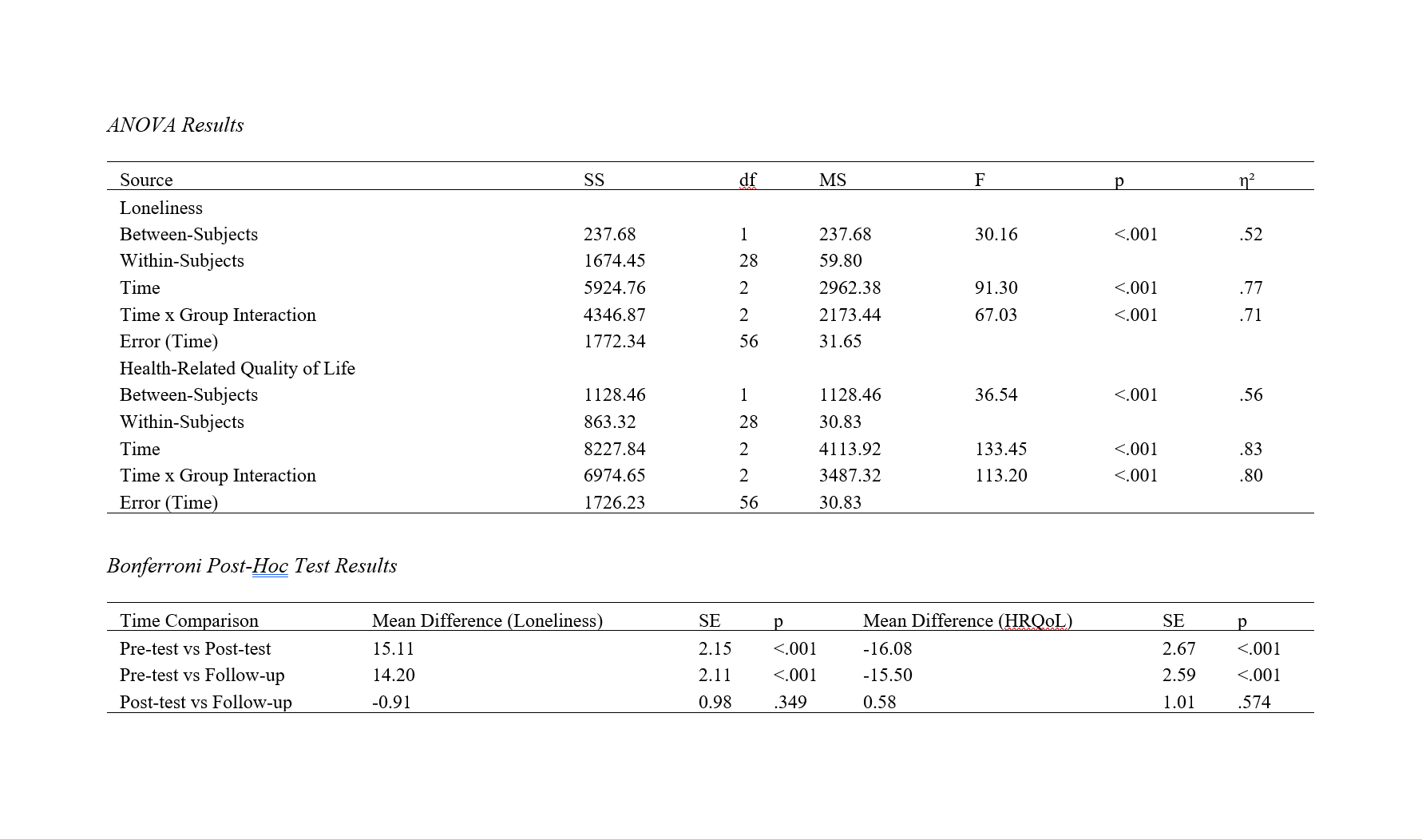Effectiveness of Self-Compassion Therapy on Loneliness and Health-Related Quality of Life in Infertile Women
Keywords:
Self-compassion, infertility, loneliness, health-related quality of life, psychological well-beingAbstract
Objective: This study aimed to evaluate the effectiveness of self-compassion training on reducing loneliness and improving health-related quality of life in infertile women.
Methods: A randomized controlled trial design was used, involving 30 infertile women recruited from a specialized infertility treatment center. Participants were randomly assigned to an experimental group (n = 15) receiving eight sessions of self-compassion training or a control group (n = 15) with no intervention. Assessments were conducted at baseline, post-intervention, and at a five-month follow-up using the Loneliness Questionnaire and the Health-Related Quality of Life Questionnaire. Data were analyzed using repeated measures ANOVA and Bonferroni post-hoc tests.
Findings: The experimental group showed significant reductions in loneliness from pre-test (M = 45.32, SD = 6.45) to post-test (M = 30.21, SD = 5.28) and follow-up (M = 31.12, SD = 5.34), while the control group remained stable. Health-related quality of life significantly improved in the experimental group from pre-test (M = 62.45, SD = 7.34) to post-test (M = 78.53, SD = 6.78) and follow-up (M = 77.95, SD = 6.65), with minimal changes in the control group. ANOVA results indicated significant time and group interactions for both loneliness (F(2, 56) = 67.03, p < .001, η² = .71) and health-related quality of life (F(2, 56) = 113.20, p < .001, η² = .80).
Conclusion: Self-compassion training is effective in reducing loneliness and improving health-related quality of life in infertile women. These benefits were sustained at the five-month follow-up, highlighting the long-term potential of self-compassion interventions in supporting the psychological well-being of infertile women.
Downloads

Downloads
Additional Files
Published
Submitted
Revised
Accepted
Issue
Section
License

This work is licensed under a Creative Commons Attribution-NonCommercial 4.0 International License.




















